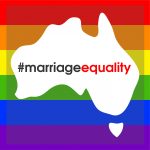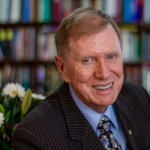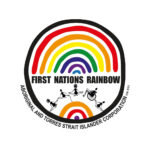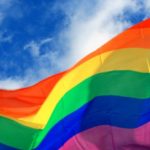NSW LGBTIQ Laws Have Come a Long Way, But More Reforms Are Needed
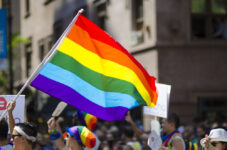
On the evening of 2 March 1996, the news that John Howard had been elected prime minister swept across the crowds celebrating at the 19th Annual Sydney Gay and Lesbian Mardi Gras parade, which lead to a haze of disappointment settling down over many of those gathered.
Indeed, the Liberal leader could hardly be called gay-friendly. He and attorney general Philip Ruddock went on to amend the Marriage Act 1961 (Cth) in 2004 to ensure the union could only exist between a man and a woman. This was to pre-empt any court rulings that found otherwise.
As the first Mardi Gras parade made its way down Oxford Street in 1978, LGBTIQ protesters were calling for an end to the criminalisation of their lives and the upholding of their rights. But that didn’t stop the NSW police moving in to clobber them, or the press trying to shame them afterwards.
Homosexuality was decriminalised in NSW six years later: on 22 May 1984. While a bill to revoke Howard’s marriage amendment law was passed on 7 December 2017, legalising marriage equality in this country.
NSW has come a long way in terms of granting LGBTIQ people the same basic rights that the heterosexual community has long had upheld. Although, there still remains key areas for reform, and a conservative backlash headed by the PM over same-sex marriage has commenced.
Progress and reform
“Reforms such as decriminalisation and marriage equality have been vital both in terms of removing legal discrimination faced by LGBTIQ people,” said Nicholas Stewart, “and in the message those reforms have sent to the community about treating LGBTIQ equally and without discrimination.”
However, the Australian Lawyers for Human Rights (ALHR) LGBT committee co-chair told Sydney Criminal Lawyers that there’s “still important work to do”.
“NSW lags behind other states of Australia when it comes to reforming legislation governing birth certificates,” he continued, “such that there are still significant impediments to trans and gender diverse people in obtaining identity documents that reflect their lived identity.”
The Transgender (Anti-Discrimination and Other Acts Amendment) Act 1996 (NSW) outlawed discrimination on transgender grounds in this state and it provided for a change of sex on birth certificates if gender reassignment surgery has been undertaken.
Although, while this type of surgery is an avenue many wish to take, other transgender people prefer not to have it, while for some it can even prove life-threatening.
Today, NSW is one of only two jurisdictions that still have this surgery requirement in law. It’s neither necessary at the federal level in terms of altering gender on passports.
A brief history of gay laws
The Transgender Act inserted part 3A into the Anti-Discrimination Act 1977 (NSW), and there’s also a section in that legislation outlawing discrimination and vilification on the ground of homosexuality contained under part 4C.
The homosexuality anti-discrimination provisions were inserted in 1983, while their accompanying vilification laws were added in 1993.
The Crimes Act 1900 (NSW) was amended in 1983 to remove the offence of homosexuality from the legislation. However, it wasn’t until May 2003 that the age of consent for homosexual men was dropped from 19 to 16 years of age, in line with heterosexual men and all women.
Another key reform was the 2014 abolition of the gay panic defence in NSW. Also known as the homosexual advance defence, gay panic was a common law offshoot of the partial defence of provocation, which was revoked at the time.
The gay panic defence allowed a man who killed another man after a sexual advance to claim the act brought on a moment of temporary insanity, which caused him to kill the other. If accepted this defence allowed for a conviction of manslaughter, instead of murder.
Non-binary recognition
Sydney gender activist Norrie won a four year legal battle back in 2014, when the High Court of Australia ruled that they had the right to have their sex registered as non-specific with the NSW Registry of Birth, Deaths and Marriages.
A key player in bringing about the transgender reforms of the late 90s, Norrie successfully appealed a decision of the registry not to record their sex as non-specific, as they were able to show that the wording of the legislation governing the registry recognised non-binary gender.
Reforms that need to come
“Other priorities include putting an end to gay conversion therapy,” Steward continued, “and highlighting the rights of our intersex community and the need to legislate against non-consensual surgery.”
Gay conversion therapy is the practice of trying to convert LGBTQ people into heterosexuals. This so-called therapy is usually carried out by religious organisations, and while ridiculous in its premise, it has long-term detrimental mental health effects on those subjected to it.
The ACT became the third Australian jurisdiction to ban the practice in August. However, NSW health minister Brad Hazzard has been shirking on the issue. This time last year he suggested there needs to be a national prohibition on this conversion therapy, rather than a state ban.
Intersex people are protected against discrimination under the federal Sex Discrimination Act 1984 (Cth), however intersex status isn’t properly addressed in NSW anti-discrimination laws.
And further, the physical integrity and bodily autonomy of intersex people is not properly protected nationally.
Intersex people are born with diverse physical sex characteristics. And in Australia, the practice of “normalisation” surgery is still being carried out upon intersex individuals in an attempt to make them physically conform to typical male or female characteristics.
As co-executive of Intersex Human Rights Australia Morgan Carpenter explained in 2017, there’s a lack of transparency in this country around this type of surgery, which continues to be performed on adolescents and teenagers without proper consent. And this procedure often results in sterilisation.
Stewart said, “These campaigns don’t have the reach of marriage equality but are just as important and deserving of advocacy efforts.”
Politicking dinosaurs
As tragic as it is, following the Australian public overwhelmingly voting for marriage equality in 2017, the nation now has to deal with the backlash coming from ultra-conservative types, like our prime minister Scott Morrison.
Following the passing of same-sex marriage laws, Morrison launched his religious freedoms crusade seeking to enact laws that permit people of faith to discriminate against LGBTIQ people on religious grounds. And while the leader of the country was at it, he extended this to all minorities.
Meanwhile, back in this state, One Nation MLC Mark Latham has been doing the PM’s bidding. Not only has the former head of federal Labor introduced his own religious freedoms bill, but he’s also tabled a piece of legislation targeting transgender and gender diverse children at schools.
Latham’s “parental rights” legislation seeks to erase any mention of gender fluidity by adult staff members at schools, including counsellors. And it ensures compliance via threat of being sacked.
ALHR LGBT committee co-chair Georgia Burke advised that the “alleged issue in NSW that teachers in schools ‘teach gender fluidity’” is a falsehood, with no data to back up the claim.
“This is a dangerous bill driven by fear and drafted with contempt for evidence-based best practice with respect to pedagogy and children’s psychological development” the lawyer concluded.


